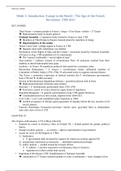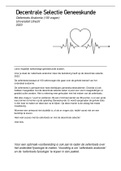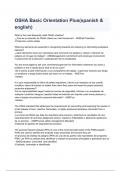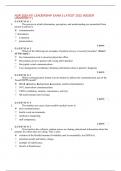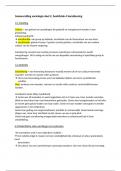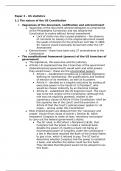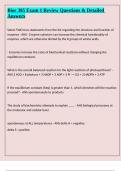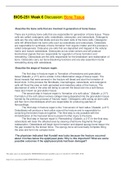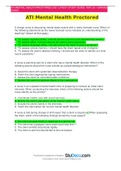Study guide
Modern History Exam Preparation
- Instelling
- Rijksuniversiteit Groningen (RuG)
Summary and exam preparation in relation to the customized Version of "Western civilization: Beyond boundares" by Nobel/Strauss et al. This summary consists of all key Terms, section summaries and chapter summaries of the Modern History book. Besides, all Seminar Questions and answers are added. ...
[Meer zien]
